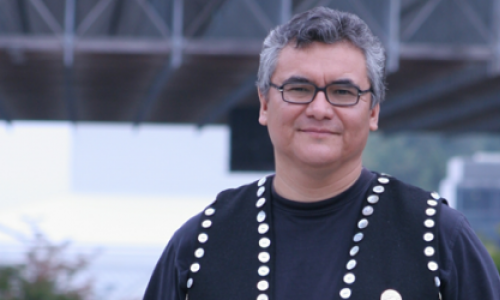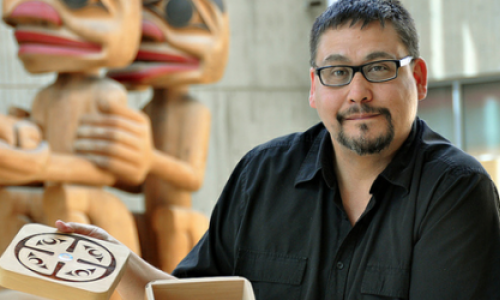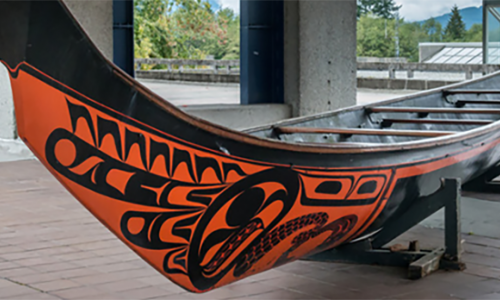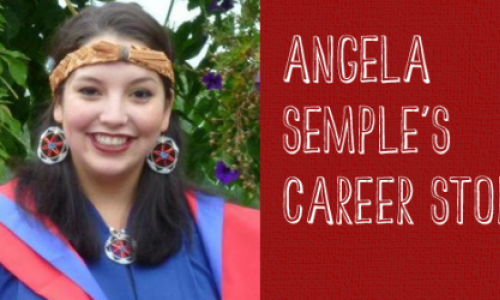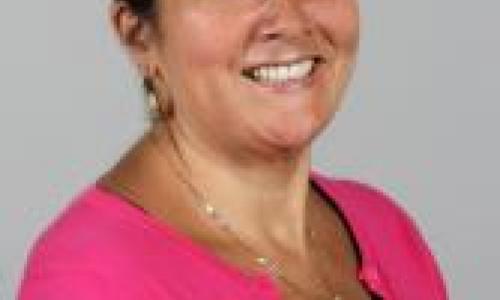As a Piikani youth living on the Brocket Reserve in Southern Alberta, Eldon Yellowhorn used to wonder how his ancestors adapted to farming and homesteading in the late 1800s after thousands of years as mobile buffalo hunters. Now, after several years of archaeological research, Yellowhorn, an SFU professor of archaeology, has some of the answers, and has chronicled his research in a 38-minute video,“Digging up the Rez: The Piikani Historical Archaeology Project.”
Last summer, he screened the video on the reserve, attracting an audience of more than 65 residents who, he says, “were fascinated” by the unexpected revelations of their community’s history. Yellowhorn’s research spanned the years between 1880 and 1920, representing the first two generations to settle on the reserve. “At that time, most weren’t speaking or writing English,” says Yellowhorn. “That’s why material culture studies—oral history interviews, archival documents, and excavations—are important for filling in the historical gaps.” To locate former tilled gardens, roads, cabins and the residential schoolyard, Yellowhorn used a method called gradiometery, which reveals anomalies in sediments aligned to the earth’s magnetic field. He then identified the hot spots that would guide the archaeological excavation.
His research shows that the Piikani adapted well to their new circumstances, and had even built a sawmill to make their own lumber. “People were very much in command of their own community,” he says. “They were able to make their farmsteads work, taking on the trappings of their new life, but they also took along their old life.
“For example, the early cabins they built were very similar to the way they used space in the tipis—the cabin was just one open space with a stove at the centre, and ritual items were at the back of the cabin, as they were in the tipi.” He was more surprised by what he didn’t find in the residential school excavation than by what he did find. “The school had been filled with children for 30 years, yet there was no evidence of children’s culture—no toys or trinkets that children keep.”
He also discovered that Brocket was originally established as a whistle-stop train station in 1897, which was a surprise. Sharing the video with Brocket residents was an important aspect of Yellowhorn’s research project, enabling him to reciprocate for the assistance he received. “If I wrote a standard history and submitted it to the library, a few people might have picked it up,” he says. “But far more will sit down and watch a half-hour documentary. “There’s just a thirst for this kind of information, because nobody has done this before.” He has posted a trailer on SFU’s YouTube channel, under FASS Research. The complete video is available on the Canadian Archaeological Association’s YouTube channel.









